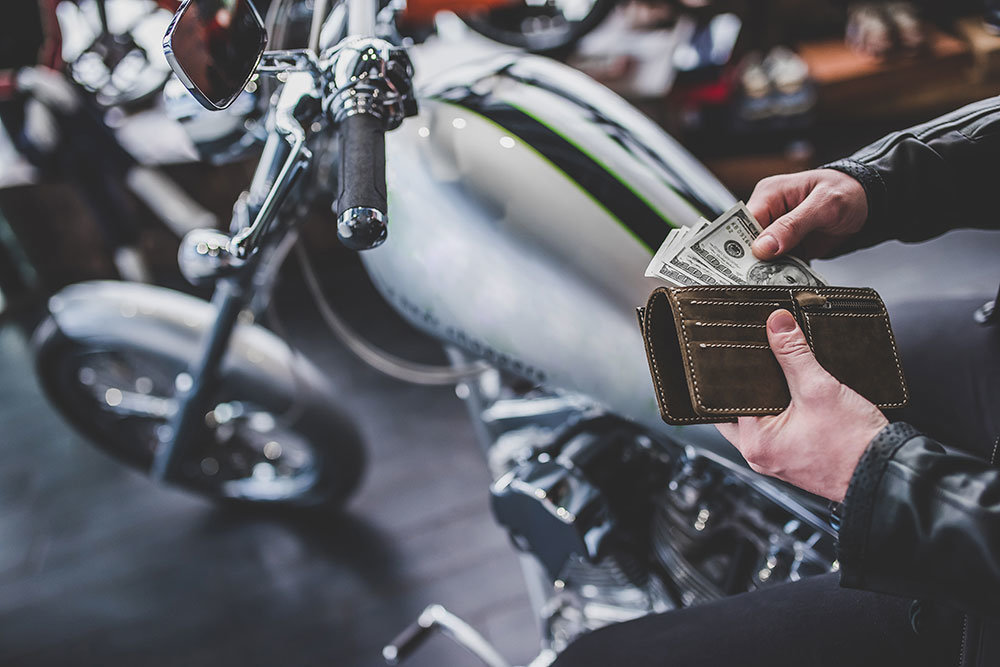Posted By
Clint Lawrence, founder of Motorcycle Shippers. Helping give riders more freedom to enjoy the bikes they love. clint@motorcycleshippers.com
American-made motorcycle prices could be about to skyrocket
The American motorcycle market has been struggling to get back up after the 2008 recession. Despite Harley-Davidson’s declining sales numbers, they remain at the top of the U.S. market. But now, they’re facing a new challenger—the new tariffs on imported steel and aluminum.
President Donald Trump’s 2016 campaign was heavily fixated on revitalizing the steel industry. He had said, “It will be American steel that will fortify America’s crumbling bridges” and he’s now making good on that promise—in what may be to the detriment of many American businesses—including iconic motorcycle manufacturer, Harley-Davidson.
In early 2017, President Trump had thanked Harley-Davidson “for building things in America,” In March 2018, he approved a new tariff (tax), imposing 25% on imported steel and 10% on imported aluminum—a move that many experts fear may negatively impact not only jobs and trade, but the very company he had thanked just a year before.
Harley Davidson’s spokesman Michael Pflughoeft said in response to the latest steel and aluminum tariffs that they would have a “significant impact” on three of the motorcycle company’s main areas: sales, suppliers and customers.
Decades of steel and motorcycle tariffs precede the present
President Trump isn’t the first to apply tariffs on steel—or make decisions that could affect the motorcycle industry (for better or worse). Former Presidents George Bush and Barak Obama had both established limited steel tariffs on China for its under-market sales.
In 1983, President Reagan enacted a heavy increase in tariffs for heavyweight motorcycles imported from Japan (which held 98% of the small bike market at the time). When Honda made its move for the big bike market in 1969, Harley took a hit. In an effort to protect the American tradition, Reagan imposed the tariff.
But the same tariffs that are meant to fuel the American steel industry and U.S. businesses today is already sparking controversy among economists, businessmen, steel manufacturers and motorcycle companies—including the brand that Reagan’s tariffs tried to protect in ’83.
But what is all the controversy about, and how will it impact American-made motorcycles? Here’s a quick look at what it all could mean.
How the tariffs could do more harm than good
More expensive products
While the tariffs bode well for steel and aluminum makers in the U.S., they could drive some serious price hikes for domestic-made goods. The lower prices of imported steel had enabled many companies to stay in business.
But with the imposed tariff on foreign metals, experts are anticipating that the higher prices of American steel will drive up costs for a host of industries dependent on steel for their products, like motorcycles, resulting in higher prices for the consumer.
- Potential trade wars
The U.S. is the largest steel importer in the world. About 13% of all steel in the U.S. is used for automotive purposes. One-third of the 100 million tons of steel used by American businesses each year is imported, as is 90% of the 5.5 million tons of aluminum. The tariffs are making a sizeable dent in the global economy. It’s causing many steel producing countries such as the E.U., Canada and China to threaten retaliation with their own tariffs against U.S. goods—including motorcycles. In light of this, Harley-Davidson’s plan to grow international business 50% by 2027 might be just a pipe dream.
Said European Commission President Jean-Claude Juncker “If the Americans impose tariffs on steel and aluminum, then we must treat American products the same way.” Which American products? Harley-Davidson, bourbon and Levi’s.
- Decreased motorcycle sales
A not-so-distant history of falling sales, and now the Trump tariffs could see the bike manufacturer incur $30 million in costs. A 13% decline in company shares, and the retaliatory tariffs that Europe (which currently imports 16% of Harley’s bikes) is threatening to impose could end up causing Hog sales to plummet even further.
The future of motorcycle sales in the U.S.
Said Vaughn Beals, Harley’s CEO and chairman during the Regan tariffs, “For years, we tried to figure out why the Japanese were beating us so badly [at owning the Motorcycle market]. First we thought it was their culture. Then we thought it was automation. Then we thought it was dumping. Finally we realized the problem was us, not them.”
If tariffs skyrocket the price of a motorcycle in an already struggling market, what will become of our favorite home-grown (and iconic) brands? Should government be allowed to boost profits for one industry while potentially harming others? What do you think?

